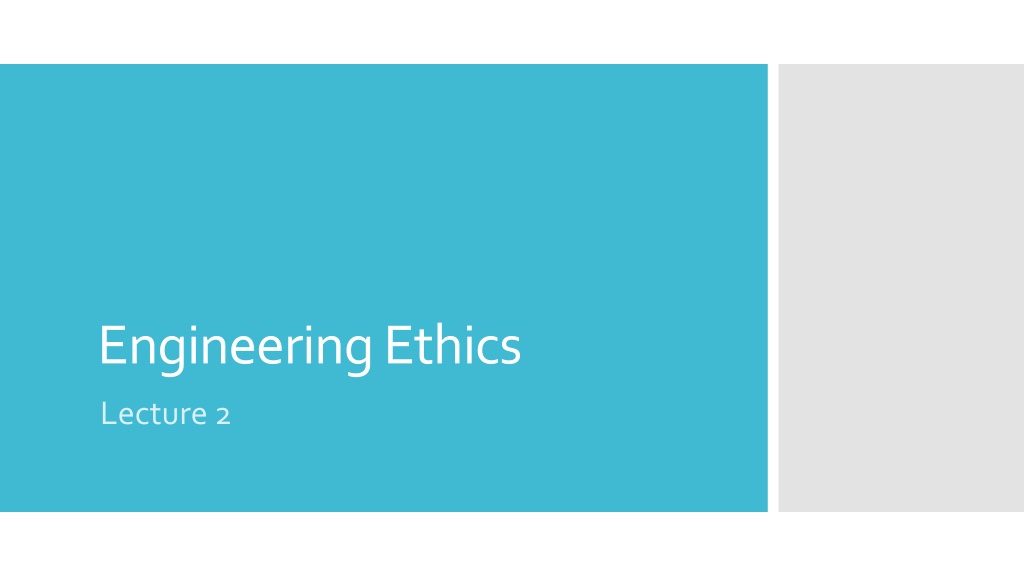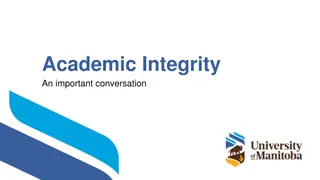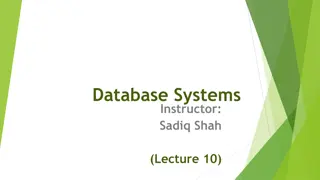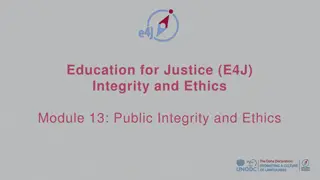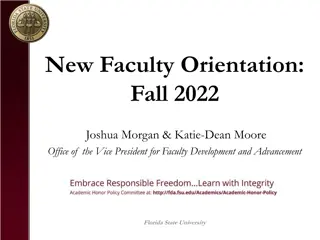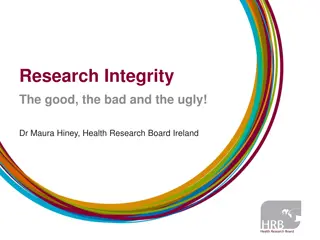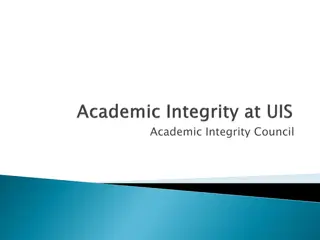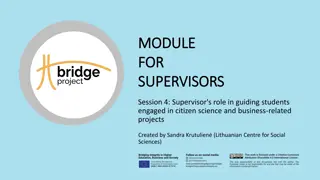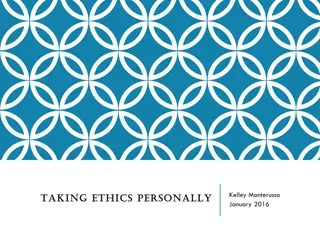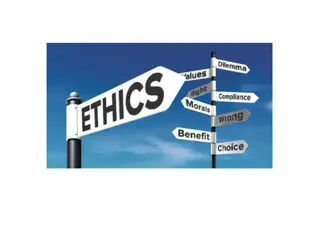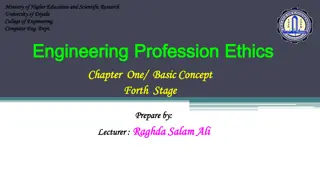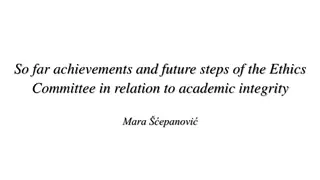Academic Integrity and Ethics in Education
Upholding academic integrity is essential in educational settings to maintain fairness and honesty. This includes understanding and adhering to rules, knowing consequences of violations, and promoting integrity among peers. The prevalence of cheating underscores the importance of addressing academic dishonesty and its various forms.
Download Presentation

Please find below an Image/Link to download the presentation.
The content on the website is provided AS IS for your information and personal use only. It may not be sold, licensed, or shared on other websites without obtaining consent from the author.If you encounter any issues during the download, it is possible that the publisher has removed the file from their server.
You are allowed to download the files provided on this website for personal or commercial use, subject to the condition that they are used lawfully. All files are the property of their respective owners.
The content on the website is provided AS IS for your information and personal use only. It may not be sold, licensed, or shared on other websites without obtaining consent from the author.
E N D
Presentation Transcript
Engineering Ethics Lecture 2
The university Academic Integrity Policy requires that each student: 1. Know the rules that preserve academic integrity and always abide by them. This includes learning and abiding by rules associated with specific classes, exams and course assignments. 2. Know the consequences of violating the Academic Integrity Policy. 3. Know the appeal rights, and the procedures to be followed in the event of an appeal. 4. Foster academic integrity among peers. Students Code of Ethics
Many components go into being a good engineering student. One of the most important, as reflected by the codes of ethics for engineers, is to be expertin your field of engineering. To be expert, it is necessary that one knows what they claim to know. Proving to others that you know what you are supposed to know requires certification through a degree. Students Code of Ethics (cont.)
70% of American high school seniors admit to cheating on at least one test 95% of the students who said they cheated were never caught. An average of 75% of college students report cheating sometime during their college career What students Say
Cheating is the act of obtaining or attempting to obtain credit for academic work by any dishonest or deceptive means. Academic Dishonesty There are 5 basic types of cheating
One obvious type of cheating that we all recognize is copying someone s work on a homework assignment, exam, or paper. Copying Submitting someone s work as your own is a kind of cheating.
Submitting your own work from one class to another class or submitting one piece of work to two distinct classes is a kind of cheating. Multiple Submissions A paper for one class is not a paper for another class.
Using sources that one is not allowed to use as deemed by the instructor or the university as a whole is a kind of cheating, such as solution manuals. Unauthorized Sources Also a text message from your friend with the answer to a question on the exam is a form of cheating.
Altering your grade in any way is a form of cheating. Altering Grades If you are given a C on your homework, paper, or exam and then you change your grade to a B+, you have cheated.
Surrogate cheating occurs when someone else either does your homework, takes an exam for you, or writes your paper. Surrogate Doing someone s work for them is a kind of cheating.
Cheating undermines the work of fellow students who are honest. Why is Cheating Wrong? When you cheat, all the other students who didn t cheat are penalized. They end up getting lower grades. Because of lower grades they lose out on scholarships and recommendations.
Cheating undermines the credibility of the university and the degrees it awards. Why is Cheating Wrong? (cont.) If too many people cheat at a university, then the degrees awarded by this university won t certify that its students are competent. So, by cheating you not only hurt yourself, you also hurt others.
Working on a team for an assigned project is not cheating. However, failing to do due assigned task on a team project is a form of cheating. It is called free-riding, which is benefiting from the work of others without doing any work of your own. Teamwork is important in engineering, but free-riding is wrong, since if everyone did it nothing would get done. Cheating vs. Teamwork
